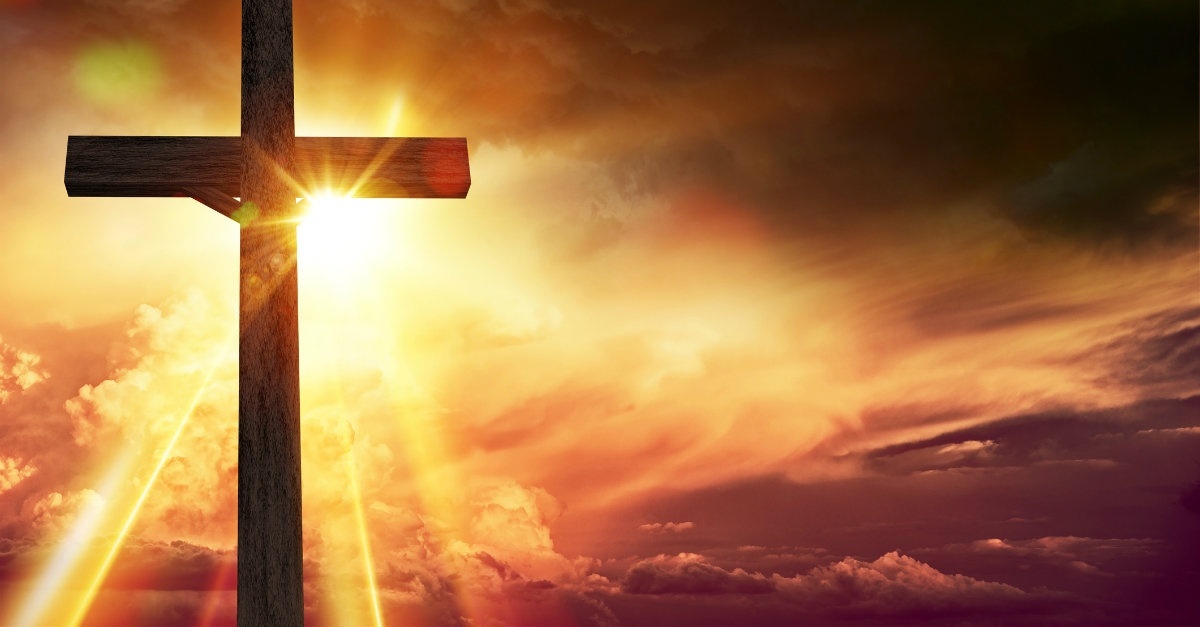I am sure some philosopher much brainier than me has worked this all out, but it occurs to me that before Good Friday the world was different. Yes, we use religious language and say, “Mankind was locked in sin” and “Jesus died to save us from our sins” but for many people these religious phrases are meaningless.
However, it occurred to me recently how there is a fresh angle on this. I think, before Good Friday, the world was locked into a cycle of blame. We were unhappy so we found someone else to blame. Its there from the beginning. “Adam, did you eat of the fruit I commanded you not to touch?”
“The woman you gave me made me do it!”
“Eve?”
“The devil made me do it!”
This is the default setting, and it eventually leads to scapegoating and killing the innocent one we blame. But I think there is another angle to it as well. As long as we blame someone else for our fault we promote and nurture the worldview of fatalism.
Fatalism is the belief that we are not masters of our own destiny, but there is another force that determines our fate. It is the gods. It is nature. It is our karma. It is the ones with power.
Fatalism is fatal. It keeps everyone who follows it enslaved. Now, before Good Friday, humanity was locked into fatalism. It was always someone else’s fault. The only other force in society was the rule of power. Some people had wealth and power. Others did not. The struggle was simply, therefore, between one powerful person and another, and human destiny was determined by who had the bigger army.
Beneath the will to power, however, was still the belief in fate. One army was bigger than another, and even so, that did not determine all because the wind might change and the ships be blown off course. Your army might come down with dysentery the night before battle. You might go mad. So the powers still trusted in the whims of the gods. They were supine before their fate despite their great power.
But at the cross Jesus abolishes the cycle of blame by taking the blame. He says, “You want to blame someone? Blame me. I’ll take it.”
When he does this he liberates humanity. Why? Because the cycle of blame no longer works. He says, “You don’t have to live this way anymore. You see how I have, by God’s power, taken control of my own destiny. With God all things are possible. Now humanity can exercise free will and do something to change things.
Christ’s death therefore is not a passive submission, but an active participation in what God is doing, and he had a good example in his mother who first said, “Let it b done to me according to your will.” She is also the one who acknowledged that with God all things are possible.
Therefore from Good Friday onwards, human free will was empowered. By the power of his death and resurrection humanity was able to shake off the bonds of fatalism which had been caused by the cycle of blame and do something about the problems in the world.
So Christians began to build hospitals and schools and orphanages. They eventually came to understand human rights and liberty and true freedom. They developed communities of love and compassion. They developed universities and science and justice and a civilization based on mutual respect, justice and care for the poor and needy.
It wasn’t perfect to start with, and we’re still working on it, but Good Friday changed the world because it changed humanity’s understanding of itself. No longer bound by fate and the whims of the gods or the irrationality of a caste system, ordinary people began to take control of their lives and make free choices for themselves and to take responsibility for themselves.
How did this happen on an individual level? Through the chemistry of repentance. Christianity called a person to repent and have faith in the risen one. When we truly repent we can no longer blame someone else. The simple point of repentance is that we are taking responsibility for ourselves and saing, “I will fix this.”
The second part is faith. In faith we also say, “I want to fix this, but I can’t do it alone. I do not have enough power. Therefore I am joining myself to the risen one so that his power can work through me to do this thing I must do.”
In this way billions of individuals have changed their mind, changed their attitude, changed their worldview changed their relationships and changed the world.
A Christianity that empowers people in this way is truly changing the world, and it is this message we must continue to spread throughout the world as the end point of every Easter.







Leave A Comment
You must be logged in to post a comment.